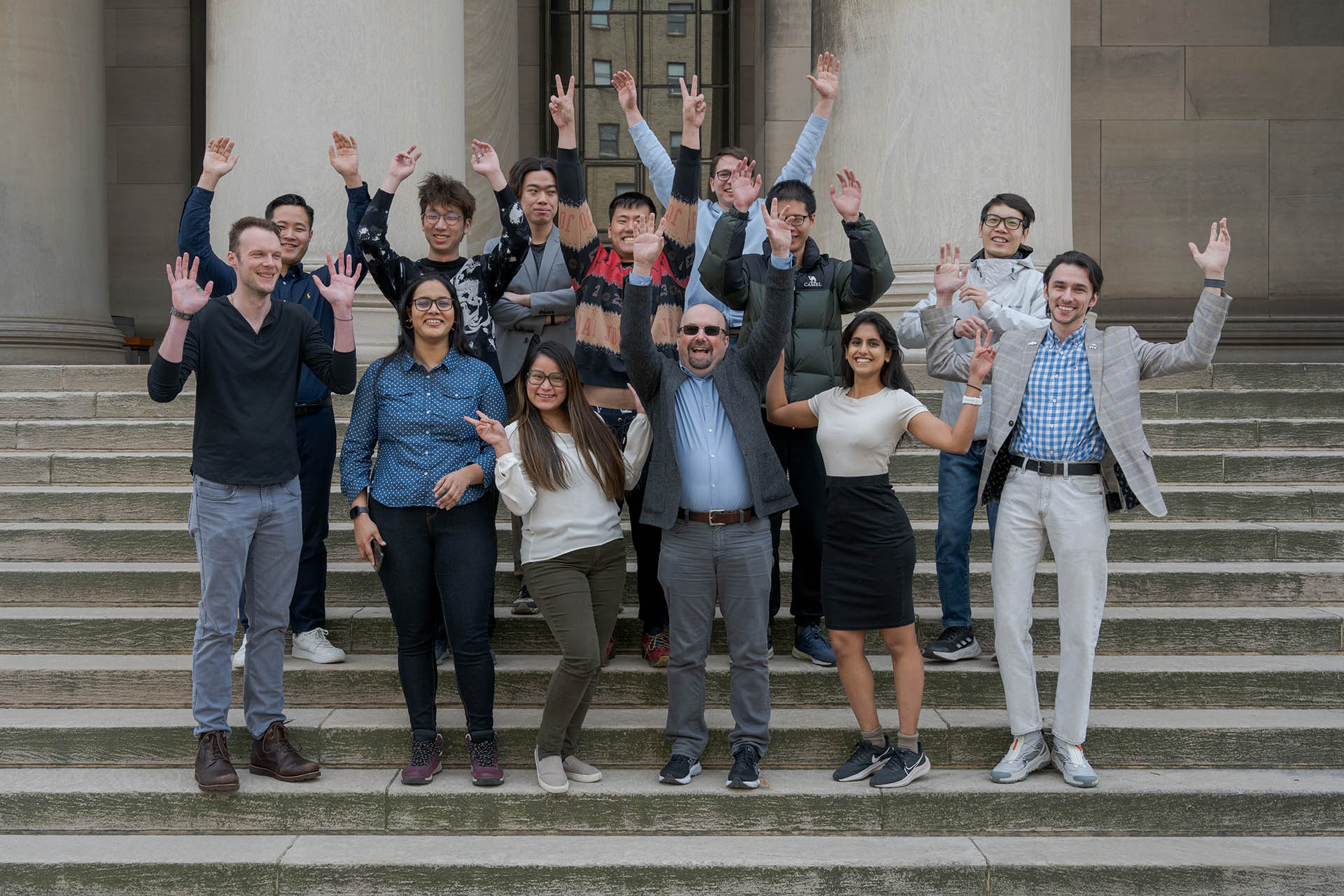Isayev Named Inaugural Carl & Amy Jones Professor of Interdisciplinary Science
Carnegie Mellon University Professor Olexandr (Oles) Isayev skillfully weaves together interdisciplinary approaches to drive rapid advancement in the field of drug discovery and materials science. For his efforts, he has been named the inaugural Carl & Amy Jones Professor of Interdisciplinary Science.
"The awarding of the Carl and Amy Jones professorship to Oles is the culmination of his rapid rise from his initial appointment as an assistant professor just four years ago," said Bruce Armitage, head of the Department of Chemistry. "We can't wait to see what amazing new discoveries Oles makes in the years to come. We are incredibly fortunate to have him on our faculty."
Isayev joined the Department of Chemistry as an assistant professor in 2020. He is joint appointed in the Department of Materials Science and Engineering and is affiliated with the Department of Computational Biology.
"It an interesting time we live in as scientists — and even as a society — for the possible scientific and technological evolutions," Isayev said. "We are in a phase transition between traditional methods of scientific inquiry and potentially a new way with artificial intelligence (AI). We'll see if all these promises deliver on their hype, but all the key pieces are there as machine learning was recognized by two(!) Nobel prized this week."
Using machine learning and neural networks, Isayev is developing technology that has rapidly accelerated the pace at which new molecules are being discovered through a combination of artificial intelligence (AI), informatics and high-throughput quantum chemistry.
His research program has generated impactful papers and earned multiple major grants that greatly accelerated his promotion to his current rank of professor. Isayev is a faculty member of the NSF Center for Computer Assisted Synthesis (C-CAS). He is also 2023 Scialog Fellow.

Isayev and his students have been at the forefront of Carnegie Mellon's efforts to adopt automated science platforms to conduct experiments. As computational chemists they use AI and machine learning techniques in their quest for scientific discovery. In one project that uses AI, active learning and automation, Isayev's team and researchers at UNC Chapel Hill found the ideal candidates for an MRI imaging agent by testing about 400 polymers in about two weeks of lab time. In a traditional lab setting, scientists would have had a nearly impossible task of creating and testing 50,000 monomer compositions. This work further resulted in winning the National Security Innovation Network-sponsored Air Force Research Laboratory Active AI Planners for Chemistry/Materials Optimization and Discovery Grand Challenge.
Closer to Pittsburgh, Isayev is building collaborations with the University of Pittsburgh and University of Pittsburgh Medical Center and several groups on campus. The COVID-19 pandemic slowed some of those collaborations, but one project is underway, with Dr. Jerry Vockley, division director of genetic and genomic medicine and director for the center for rare disease therapy at UPMC.
Along with conducting research Isayev teaches courses such as Neural Networks & Deep Learning in Science as well as Computational Modeling, Statistical Analysis and Machine Learning in Science. The courses provide practical introductions to the core concepts and tools of machine learning in a manner easily understood and intuitive to STEM students.
Isayev said his machine learning course has 64 students and grows each time it's offered.
"It's probably one of the fastest growing classes in MCS and trains students to be more interdisciplinary," he said. "I teach chemist, biologists, even mathematicians, data science and machine learning and how to apply those to scientific problems."
Prior to joining Carnegie Mellon, Isayev was a research assistant professor at UNC Chapel Hill in the Eshelman School of Pharmacy. He earned his master's degree in chemistry at Dnipro National University in Ukraine and his doctorate in theoretical chemistry at Jackson State University.
The chair is named for 1956 Mellon College of Science alumnus Carl and his wife, Amy, Jones. Through a generous gift they established an endowment that supports not only the chair but also the future of science through interdisciplinary collaborations and the Carl & Amy Jones Lecture in Interdisciplinary Science, which is part of the University Lecture series and is presented annually by a researcher whose work uses interdisciplinary means of inquiry to advance the sciences and scientific knowledge.
